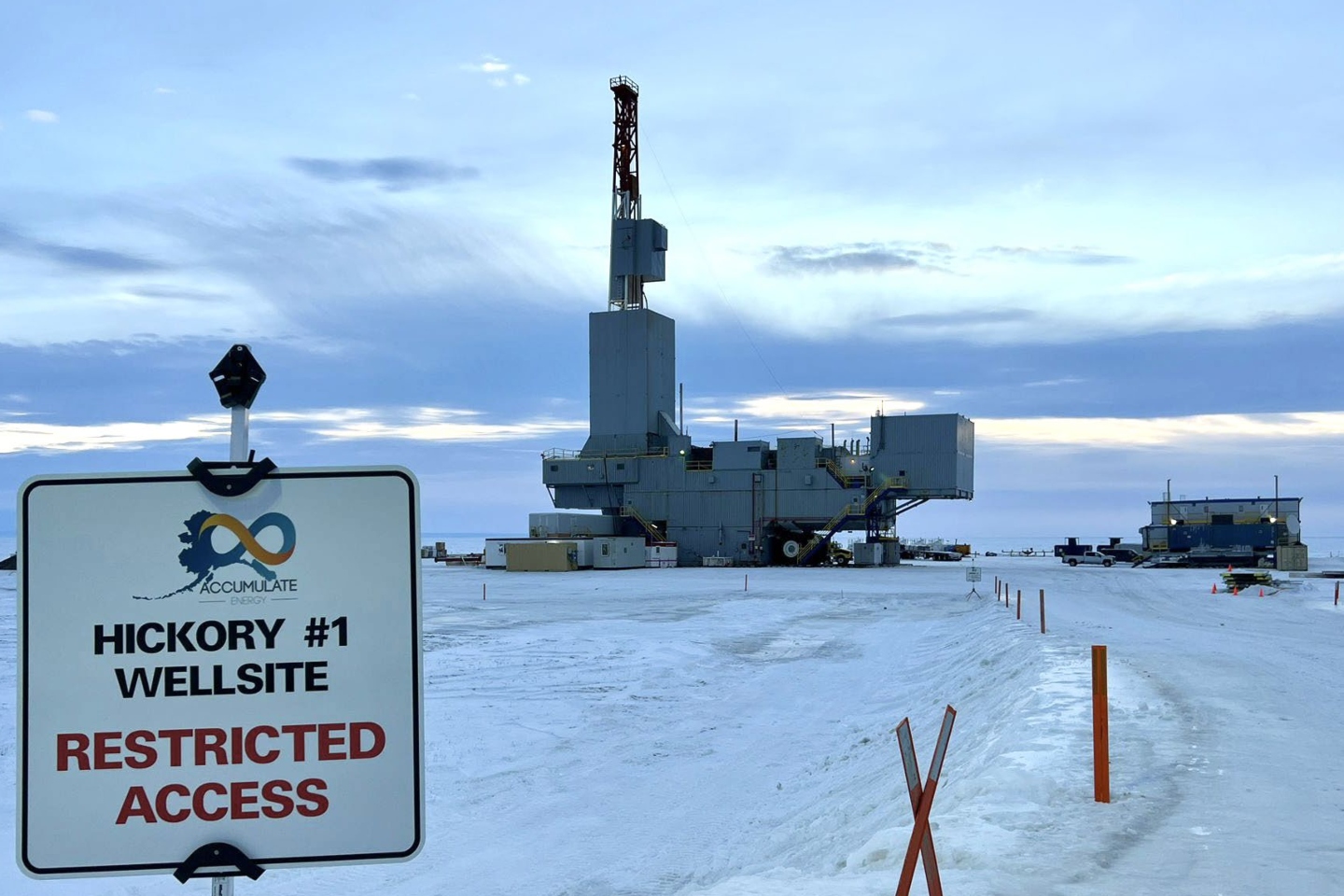88 Energy hopes to bolster its Phoenix project in Alaska this month by certifying a maiden contingent resource for the lower basin floor fan reservoir intersected by the Hickory-1well in March this year. The pay zone was drilled and flow tested successfully by neighbouring company Patheon Resources on its ground to the north, resulting in a significant 962.5 million barrels of total marketable liquid as a best estimate contingent resource for the reservoir.


88 Energy hopes to bolster its Phoenix project in Alaska this month by certifying a maiden contingent resource for the lower basin floor fan reservoir (BFF) intersected by the Hickory-1well in March this year. The pay zone was drilled and flow tested successfully by neighbouring company Patheon Resources on its ground to the north, resulting in a significant 962.5 million barrels of total marketable liquid as a best estimate contingent resource for the reservoir.
88 Energy is hopeful its intersection of the lower BFF by its Hickory-1 well will provide a shot in the arm for its existing prospective resource estimate of 341 million stock tank barrels unrisked.
In addition to the potential for volumetric growth assigned to the lower BFF reservoir, 88 Energy management hopes to upgrade the volume to a contingent resource classification, which has significantly less uncertainty than just a prospective resource.
If the lower BFF volume can be upgraded to a contingent resource, Hickory-1 can be classified as a discovery well retrospectively.
Any potential resource boost will be the focus of an independent review of Hickory-1 well data by Netherland, Sewell & Associates, Inc (NSAI), the same independent resource certifier used by Pantheon.
Significantly, 88 Energy says high quality seismic data shows the BFF reservoirs seen in Pantheon’s territory extend about 15km southeast to its Hickory-1 well, giving confidence to the existence of a quality pay-zone at that level on 88 Energy’s ground.
The onshore Alaskan oil fields have been revealing plenty of black gold for Pantheon Resources of late at its Kodiak project which abuts 88 Energy’s ground to the north.
Wood Mackenzie published a report in March this year stating Pantheon’s Theta West-1well was the fourth biggest discovery well globally in 2022 and the largest onshore drill hit.
The Theta West-1 well and another Pantheon well at Kodiak called Talitha-A, are both within about 20km of Hickory-1 and were flow tested successfully at the BFF level, giving more confidence to the potential for a high quality hydrocarbon charged BFF reservoir at Hickory-1.
88 Energy management says it expects to flow test multiple reservoirs at the Hickory-1 location and if successful, integrate the data into a resource assessment late next year with the intention of obtaining contingent resource classifications for all tested reservoirs – a significant project milestone.
Hickory-1, which is part of the company’s project Phoenix – was drilled in March this year and reached a depth of 3246m, falling just short of the permitting depth of 3810m. The company made the decision to end the hole in order to preserve its condition to allow wireline logging.
The well is currently cased and suspended awaiting the arrival of Rig-111, which will re-enter the hole and complete the flow testing program during the Alaskan winter in Quarter 1 next year.
The well was designed to appraise up to six conventional reservoirs within primary targets. They include the shelf margin delta A, B and C intervals, secondary targets in the slope fan system (SFS), the BFF and a tertiary target in the Kuparuk which was not drilled.
The company has previously said all reservoirs were hit at slightly higher than forecast depths and all have gross reservoir thicknesses equal to or greater than pre-drill estimates.
Last month, the Phoenix project received another confidence boost when the company announced it had mapped the Upper SFS reservoir an additional 7km further south, tying the sand to Icewine-1 and -2.
The Upper SFS reservoir boasted abundant oil shows and fifteen times background gas levels when tested by the bit at Hickory-1, causing the mud tanks to bubble.
Management says preliminary evaluation of the Hickoy-1 wireline data suggests the Upper SFS contains about 110m of gross and 24m of net pay, with porosity values ranging from 10.5 per cent to about 16 per cent. The interval showed “crossover” of neutron and density logs suggesting it is made up of porous sandstone containing oil in those pore spaces – like a hardened oil-soaked sponge.
The 250-square-kilometre Phoenix project is surrounded by market-ready infrastructure and it sits adjacent to the Trans Alaskan Pipeline (TAP) and the 666km-long Dalton Highway that runs from the town of Deadhorse in the north to the Elliot Highway in the south.
The TAP provides the company with immediate export infrastructure and is one of the world’s biggest oil pipeline systems, consisting of 11 pump-stations and the ice-free Valdez marine terminal at its southern terminus.
The market will no doubt be watching for the results of the NSAI report into the lower BFF resource as 88 Energy looks to flow test even more reservoir sections at Hickory-1. The next few months will be a busy patch for the company with hard hitting data coming back to the office and a maiden contingent resource within reach.
Is your ASX-listed company doing something interesting? Contact: matt.birney@businessnews.com.au













